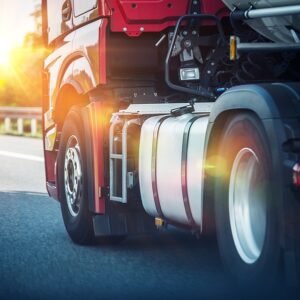If you were to ask someone in this state whether they should have to comply with regulations from Sacramento instead of Harrisburg, chances are they would come back with, “You are California dreaming.” But that is the case for Pennsylvania’s trucking industry.
“They have no choice but to do as Sacramento tells them,” said attorney Luke Wake of Pacific Legal Foundation.
In 2002, the Pennsylvania Environmental Quality Board (EQB) made a regulation saying that when it comes to the environmental standards for heavy diesel engines, Pennsylvania would follow California’s lead and do whatever the California Air Resources Board (CARB) does. If and when California changes its regulation, so does Pennsylvania. Well, CARB wants better, cleaner diesel trucks on the road. The problem, Wake said, is that Pennsylvania citizens are cut out of having any opportunity to make changes.
“We think it’s a problem when significant issues like this are being decided not by the elected representatives of Pennsylvania,” said Wake. “The General Assembly should be the one making law that governs in Pennsylvania. That shouldn’t be outsourced.”
Pacific Legal Foundation filed a lawsuit this year in Commonwealth Court on behalf of Lenhartsville-based Peters Brothers, Inc., Pennsylvania Motor Truck Association (PMTA), and others. The plaintiffs are challenging what they call “Pennsylvania’s unlawful regulatory outsourcing” to protect their livelihoods and restore democratic accountability for all Pennsylvanians.
“Implementing CARB regulations will have devastating impacts on Pennsylvania trucking companies, the majority of which are small, locally owned businesses like Peters Brothers Trucking,” said Rebecca Oyler, PMTA president and CEO.
One concern is how much it would cost to buy a new truck that is deemed better for the environment. Thanks to California’s rules, trucks with sticker prices around $190,000 will now set buyers back $260,000. That is an increase of about 33 percent, on top of existing inflation.
An argument for heavy diesel engine standards is that something must be done to improve air quality. Still, Pennsylvania’s trucking industry ranks third in the nation for the highest percentage of newer, cleaner, heavy-duty trucks on the road. According to the Diesel Technology Forum, 66 percent of all Pennsylvania trucks in 2022 are advanced technology, near-zero-emissions diesel trucks. The national average is 57 percent. California’s average is 53 percent.
Pennsylvania business leaders are now telling bureaucrats and politicians in other states to butt out. David N. Taylor, president of the Pennsylvania Manufacturers’ Association, said other states’ officials should never make binding decisions on the citizens of our commonwealth.
“Those powers must be reserved solely for authorities who are accountable to Pennsylvanians,” said Taylor. “No one has the right to outsource our sovereignty.”
Oyler agreed, adding that PMTA believes only the Pennsylvania General Assembly can make law in Pennsylvania because only the General Assembly speaks for the people it represents and to whom it is accountable. Meanwhile, state regulatory agencies cannot outsource rulemaking authority, as they have here, to government agencies in other states.
“Doing so subverts democratic accountability to the people and is an affront to our constitution,” Oyler said.
Brian Wanner, owner of Peters Brothers Trucking, told journalist John Stossel that trucking companies will either continue driving older trucks to get around buying new models or they will buy trucks from states that do not mirror California’s regulations and therefore have cheaper models. If that happens, the regulation becomes pointless. It will not help cut down on air pollution.
“The reason the EQB thinks it could get away with this is the statute that the legislators wrote in Pennsylvania gives very opened-ended authority for the EQB to write whatever regulatory standards they think are appropriate, and essentially, that’s the root of this problem,” said Wake. “At some level, the Pennsylvania General Assembly gave away its lawmaking pen to this agency, and apparently the agency says, ‘Oh, we have such open-ended authority we can do anything we like, including adopting any standard California does.’ And so they get the lawmakers’ pen from the General Assembly, and in turn, they hand it over to another state, which compounds the problem.”
If the issue is not resolved and the EQB keeps going with California’s emissions standards, the issue may be raised in other states. Similar provisions are on the books in Minnesota and Virginia.

